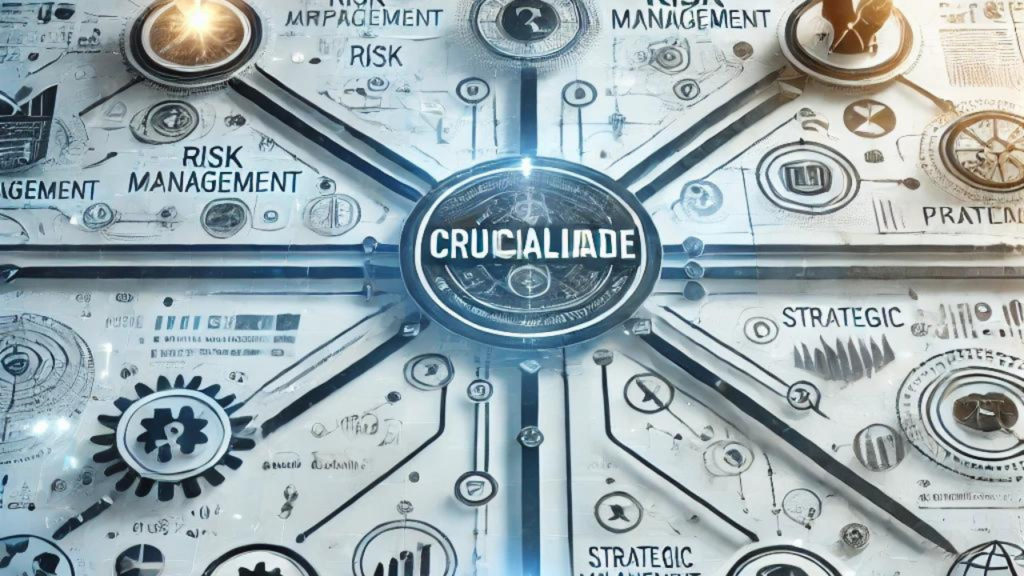Introduction
In the modern world, where decisions are often made under pressure and the stakes are high, understanding the concept of “crucialidade,” or criticality, is essential. This term, derived from the Portuguese word for “cruciality,” refers to the importance or significance of specific elements or moments that can profoundly impact the outcome of a decision or situation. Whether in business, personal life, or broader societal contexts, recognizing and addressing crucial factors can be the difference between success and failure.
The Concept of Crucialidade
Crucialidade, in its essence, is about identifying the critical points in any process or decision that have the most significant impact. These are the moments or factors that, if managed well, can lead to favorable outcomes but, if neglected, can result in disaster. The concept is closely related to risk management, strategic planning, and prioritization, where the goal is to focus on what truly matters and ensure that these critical aspects are handled with the utmost care.
The Role of Crucialidade in Decision-Making
Crucialidade plays a pivotal role in decision-making. Every decision involves weighing various factors, some of which are more critical than others. By identifying these vital factors, decision-makers can allocate resources, time, and attention more effectively. This approach increases the chances of success and minimizes the risk of unforeseen consequences.
For example, in business, a company may face a critical decision about launching a new product. The crucial factors in this decision are market demand, production costs, and competitive positioning. By focusing on these vital aspects, the company can make an informed decision that maximizes its chances of success while mitigating potential risks.
Crucialidade in Personal Life
Crucialidade is not just limited to business or professional settings; it is equally important in personal life. Every individual faces critical decisions that can shape their future, such as choosing a career path, deciding where to live, or determining how to invest time and resources. Understanding and identifying the crucial factors in these decisions can lead to more fulfilling and successful outcomes.
For instance, when choosing a career, critical factors include personal interests, job market trends, and long-term growth potential. Individuals can make more informed decisions that align with their goals and aspirations by focusing on these crucial elements.
The Impact of Crucialidade on Risk Management
Risk management is another area where crucial dates are of paramount importance. Risks always need to be managed in any project or endeavor. By identifying the critical risks—those that have the highest potential impact—organizations and individuals can take proactive steps to mitigate them.
For example, critical risks in a construction project might include safety concerns, budget overruns, and delays. By focusing on these risks, project managers can implement strategies to prevent them from occurring, thus ensuring the project’s success.
Crucialidade in Strategic Planning
Strategic planning is about setting long-term goals and determining the best way to achieve them. In this process, crucial dates play a key role in identifying the most critical factors that will influence the plan’s success. By focusing on these vital elements, organizations can develop more likely-to-succeed strategies.
For instance, a company planning to expand into a new market might identify critical factors such as market entry barriers, regulatory requirements, and customer preferences. By addressing these crucial elements in the strategic plan, the company can increase its chances of successfully entering the new market.
The Relationship Between Crucialidade and Prioritization
Prioritization is determining the order in which tasks or projects should be completed. Crucialidade is closely related to prioritization because it helps identify which tasks or projects are most critical to achieving the desired outcome. By focusing on these crucial tasks, organizations and individuals can ensure that the most vital work is completed on time and with the necessary resources.
For example, in a product development project, the critical tasks include finalizing the design, securing funding, and conducting market research. The project team can ensure the product is successfully developed and launched by prioritizing these crucial tasks.
The Role of Crucialidade in Problem-Solving
Problem-solving is another area where crucial data is essential. When faced with a problem, it is vital to identify the critical factors contributing to it. By focusing on these essential factors, individuals and organizations can develop practical solutions that address the root cause of the problem.
For instance, if a company is experiencing declining sales, the critical factors include changing customer preferences, increased competition, and economic conditions. By focusing on these crucial factors, the company can develop a strategy to address the issue and improve sales.
Applying Crucialidade in Everyday Life
Crucialidade is a concept that can be applied in everyday life to make better decisions, manage risks, and achieve goals. By identifying and focusing on the most critical factors, individuals can increase their chances of success and avoid unnecessary pitfalls.
For example, critical factors in vacation planning include budget, destination, and travel dates. By focusing on these crucial elements, individuals can plan a vacation that meets their needs and preferences while staying within their budget.
The Future of Crucialidade in Decision-Making
As the world becomes increasingly complex, the importance of crucial data in decision-making will continue to grow. With more information and options available, it will be essential to identify and focus on the critical factors that truly matter. This approach will lead to better decisions and help navigate the challenges and uncertainties of the modern world.
Organizations and individuals embracing the crucial date concept will be better equipped to thrive in this environment. By focusing on what truly matters, they can achieve their goals more effectively and avoid the pitfalls of neglecting critical factors.
Conclusion
Crucialidade is a powerful concept with broad applications in decision-making, risk management, strategic planning, prioritization, and problem-solving. By understanding and applying crucial data, individuals and organizations can make better decisions, manage risks more effectively, and achieve their goals. As the world becomes more complex, focusing on critical factors will only increase, making crucial data an essential tool for success in the modern world.
FAQs about Crucialidade
1. What is crucialidade?
Crucialidade is the concept of identifying and focusing on the most critical factors or elements in any decision, process, or situation that significantly impact the outcome.
2. How does crucial data apply to decision-making?
Crucialidade helps decision-makers prioritize and focus on the most critical factors, ensuring that resources, time, and attention are allocated effectively to maximize success and minimize risks.
3. Can crucial dates be applied to personal life?
Yes, essential dates can help make more informed decisions, manage risks, and achieve individual goals by focusing on the critical factors that matter most.
4. What is the relationship between crucialidade and risk management?
Crucialidade is essential in risk management as it helps identify and mitigate the critical risks with the highest potential impact on a project or situation, leading to more successful outcomes.
5. Why is crucialidade important in strategic planning?
In strategic planning, crucialidade helps organizations identify and address the critical factors that will influence the success of their long-term goals, ensuring that their strategies are focused and effective.
You May Also Read: https://magazinescore.co.uk/fl34-894323/








